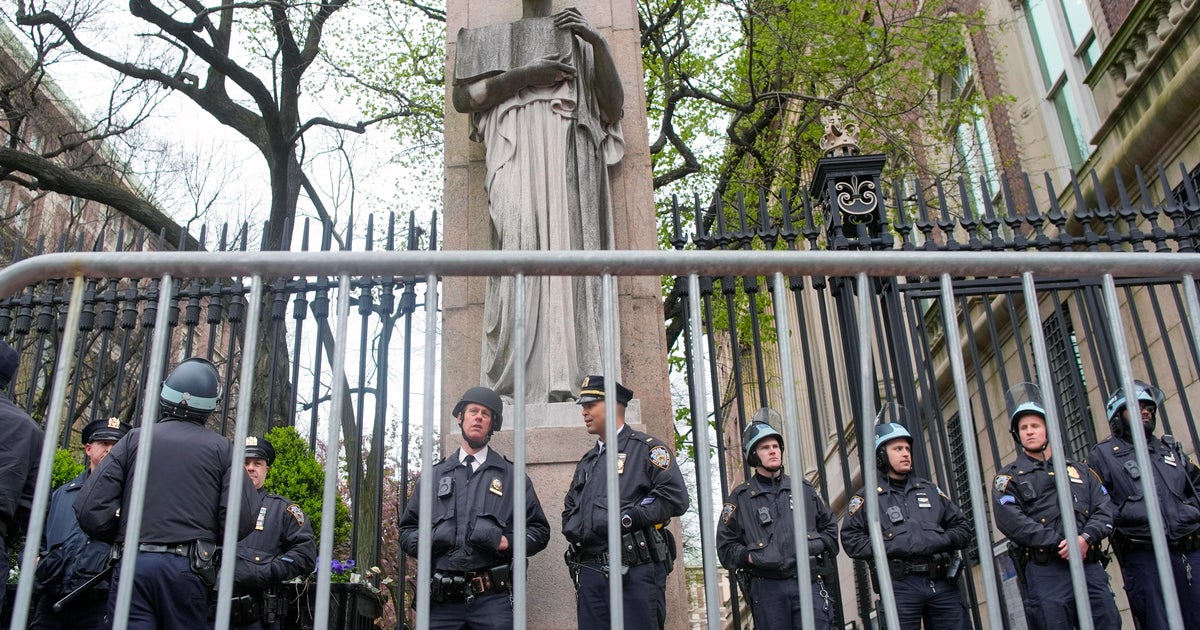Geo-Tagging: The Dangers Of Posting Pictures Online
Updated 11/04/10 8:20 a.m.
NEW YORK (CBS 2) -- Posting photos on social networking sites, like Facebook and MySpace, is a quick and easy way to show friends and family what you've been up to.
Those innocent snapshots, though, could be revealing a lot more about your life than you think, potentially putting your home and family at risk, reports CBS 2's Chris Wragge.
The first day of school, a big birthday, or a romantic stroll in the park are all memories you want to preserve and share with friends and family, but Internet experts warn there may be a hidden danger contained in some of the photos you're putting online – a geo-tag.
"For people to be able to know exactly where you are could be a little bit scary," David Conroy, executive editor of CNet, said.
That's exactly what a geo-tag tells them, though, and that's not all. Invisible to the naked eye – it's embedded in the picture – a geo-tag contains specific details like the time and date the photo was taken, along with the exact location of where it was taken.
"Every smart phone out there now has GPS built into it, so it's really become very prevalent to do geo-tagging," Conroy said.
"The location can be as accurate as plus/minus one meter, depending on the reception of the GPS signal of the device you're using," Gerald Friedland, of the International Computer Science Institute, said.
Christina Parker was posting photos of her dog when she received an ominous message from a stranger, saying he knew exactly where she was.
"I thought it was a little scary – they were accurate to my location from my house," Parker said. "My immediate response was, 'what happened, how do you know where I am?'"
The message was from Larry Pesce, the founder of icanstalkyou.com – but it's not what you think.
Pesce doesn't really stalk people; he just wants to warn people like Parker. He says his site is devoted to raising awareness about online privacy dangers.
"For example, let's take a picture of your nice, brand new 50-inch plasma TV at your house, and you're now sharing the location of that TV. An hour later, you're posting a photograph from the 7-11, and now we know that you're not home," Pesce said.
"There's definitely been stories out there where people have broadcast like, 'hey, I'm out of town for two weeks, I'm in Cancun' and they do get robbed," Conroy said.
In addition to robberies, experts say geo-tagged photos can also lead to stalking, domestic violence and kidnapping.
"There's enough information out there that you can actually track people and do potential harm to them," Friedland said.
In a study on the privacy implications of geo-tagging, Friedland found most people had no idea how much information they reveal online.
Few people who spoke to CBS 2 knew either.
"I'm kind of surprised by that," Jacksonville, Florida resident Christy Ruvanka said.
"The thought of that is definitely scary," said Stacey Sellars of the Upper East Side.
To protect yourself, check out and tweak the privacy settings on your social networks, and turn off the GPS feature for pictures on your phone.
For more information on geo-tagging, use these resources:



